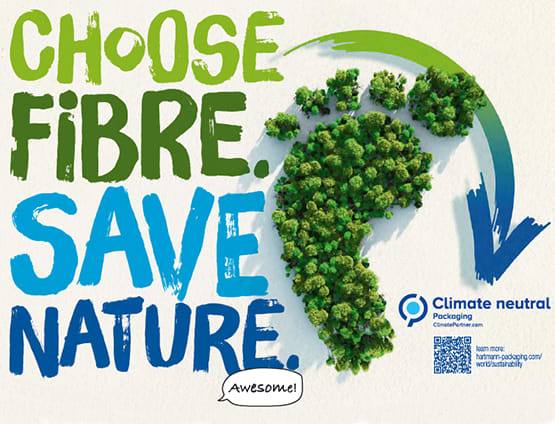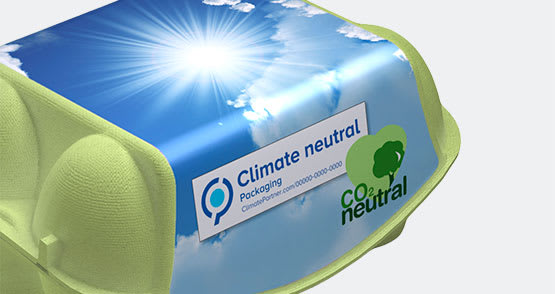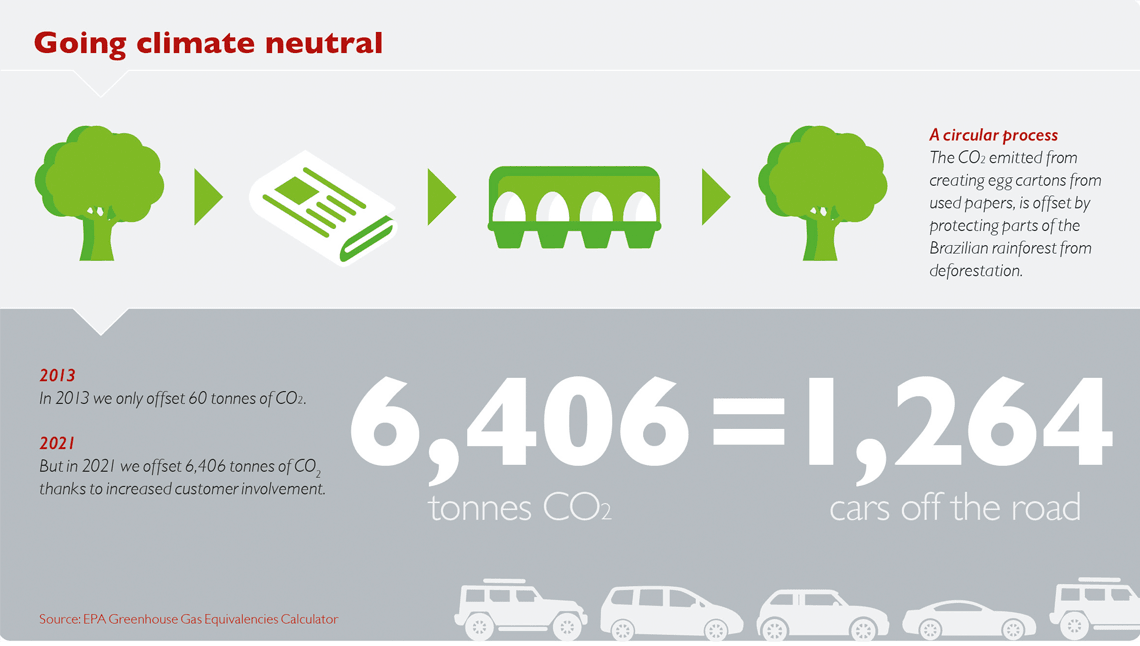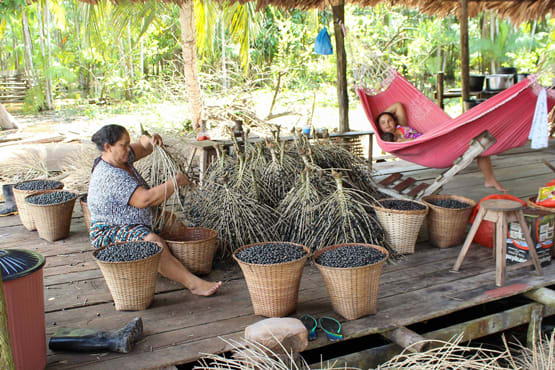- Climate neutral packaging
- Climate neutral packaging
Conscious consumers demand more from produce
How a forest in Brazil can help meet consumer demand for more sustainably marketed products.
As awareness of global climate change and plastic pollution rises, consumers are increasingly taking into account the environmental impact of their purchases and using their spending power to drive change.
In fact, a study by leading market research companies Kantar, Europanel and GfK showed that 48% of consumers worldwide expect manufacturers to take the lead in reducing or removing plastic packaging from their supply chain and point of sale.
What’s more, 2019 research from the New York University Center for Sustainable Business showed that shoppers aren’t just saying they want more sustainable products, they are actually buying them. The research found that 50% of sales growth in fast-moving consumer goods in the USA between 2013 and 2018 came from sustainability-marketed products.
On top of this, policy changes as a result of the EU’s Green Deal are likely to impact industry. The deal commits the 27 states to achieve zero net carbon emissions by 2050, and businesses that don’t comply could run penalty risks.

Going green makes business sense
Now, more than ever, offering greener solutions isn’t just something that’s good for the planet, but also a driver for sales. And while Hartmann’s moulded fibre packaging is already plastic-free, we saw the need to go further in order to support our customers and the environment better.
That’s why in 2013, Hartmann became the first egg packaging company to offer climate neutral packaging. Between then and 2020 we have offset more than 14,800 tonnes of CO2, the equivalent of taking 3,231 cars off the road.
What is climate neutral packaging?
Climate neutral (or carbon neutral or CO2 neutral) packaging is where all the carbon emissions related to the packaging production have been calculated and then compensated for by a carbon offset project. This could be, for example, with a forest conservation project. Here the trees remove CO2 from the atmosphere while also providing benefits to local communities.
The first step of this process is minimising carbon emissions as much as possible. For Hartmann, keeping greenhouse gas emissions and energy use low through optimized production
measures has always been central to running a productive business.

Transparency via labelling
As with communicating Fairtrade or organic credentials, labelling that tells the story of climate neutral packaging is essential for enabling a conscious consumer purchase.
Customers who choose our climate neutral egg packaging are able to implement the climate neutral logo and a unique ID number.
With this number consumers and retailers can gain online access to the offsetting process that relates to the specific package’s carbon footprint. This gives unparalleled process transparency.


The time is now
Sustainability is no longer a buzz word. Consumers are demanding more from their products, and as producers, suppliers or brands, we must keep up.
By working together to create sustainable packaging solutions, we can not only help tackle global climate change, but also maintain or improve brand image, while gaining a competitive advantage.
Increasing product appeal
With this project, we can go further in creating a product that differentiates from other egg brands at PoS and
ultimately is more appealing to shoppers.
Torben Rosenkrantz-Theil, CEO of Hartmann said: “Many retail chains and egg producers have already switched to climate neutral packaging from Hartmann.
Today, several million of our climate neutral egg cartons can be found across a number of countries in Europe and beyond.
We are pleased that our customers have supported the green development and made it possible to offset more than 21,000 tonnes of CO2 in the last eight years.
Hartmann’s efforts to reduce the group’s environmental and climate footprint is continuing in 2021 with a particular emphasis on energy reduction and improved logistics, and we will be investing in environmental and climate friendly technologies.”
Working with ClimatePartner and the forest protection project in Pará, Brazil
Hartmann has joined forces with ClimatePartner, one of the world’s leading climate protection consultancies, to implement climate neutral packaging.
Part of going climate neutral is reducing carbon emissions during the production process. We then calculate the emissions that we can’t avoid, and offset these by supporting certified
ClimatePartner projects.
We are currently participating in a forest protection project in Pará, Brazil, which covers an area of over 86,000 hectares. A total of 145,000 tonnes CO2 can thus be stored per year.


The project also helps to:
• create new job opportunities from sustainable cultivation and sale of açaí
• preserve biodiversity and protect a highly endangered ecosystem
• provide new food sources (fish tanks, vegetable gardens)
While we choose to work with Pará, other offset projects are available. All of them are audited and certified according to international standards.
To learn more visit climatepartner.com
How mobile henhouses drive more sustainable farming, and how our packaging drove their egg sales.
29 November 2021
French brand Matines puts all its eggs in one basket.
08 October 2021
Hartmann’s creative team has developed together with our customer Columbus Frischei a very new egg product concept for Germanys well-known retailer ALDI.
03 November 2022